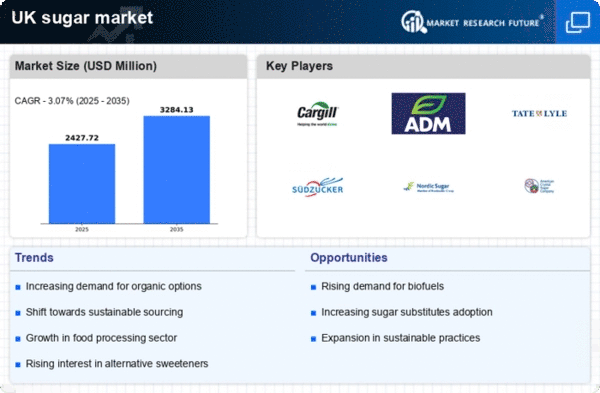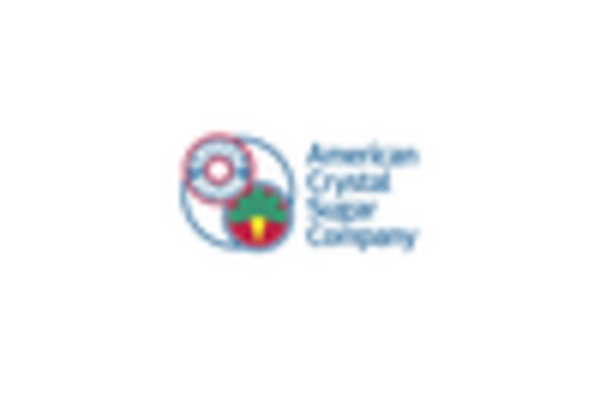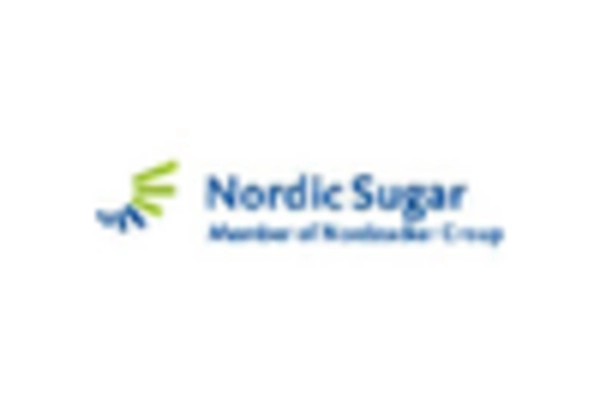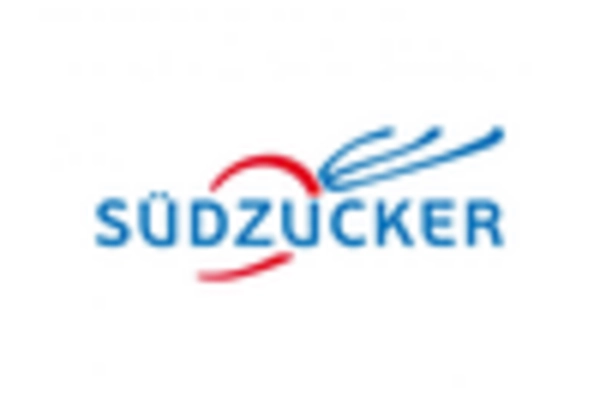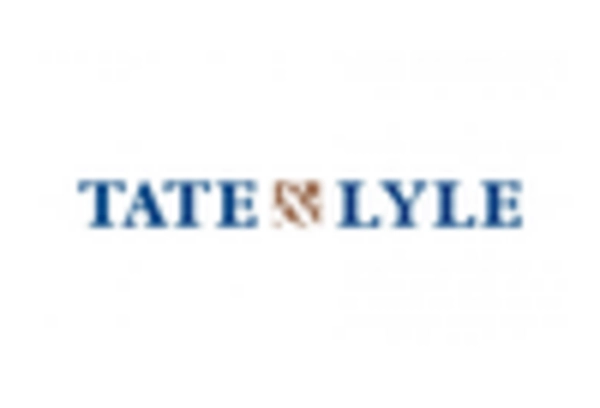Export Opportunities in Emerging Markets
The industrial sugar market in the UK is witnessing potential growth through export opportunities in emerging markets. Countries in Asia and Africa are experiencing rising sugar consumption due to population growth and urbanization. As the UK seeks to expand its trade relationships, the industrial sugar market could capitalize on these emerging markets, which may offer lucrative opportunities for exporters. Recent statistics suggest that UK sugar exports have increased by approximately 15% over the past year, indicating a growing interest in British sugar products abroad. This trend may continue as international demand for high-quality sugar rises, positioning the UK as a key player in the global sugar trade. Such developments could lead to increased production capacities and investments in the industrial sugar market.
Regulatory Changes Impacting Sugar Pricing
Regulatory changes are a significant factor affecting the industrial sugar market. In the UK, government policies aimed at reducing sugar consumption have led to the implementation of sugar taxes and stricter labeling requirements. These regulations can influence pricing strategies within the industrial sugar market, as producers may need to adjust their pricing to remain competitive while complying with new standards. Recent analyses indicate that sugar prices have fluctuated due to these regulatory impacts, with some producers facing increased costs associated with compliance. As the regulatory landscape continues to evolve, the industrial sugar market must navigate these challenges, which could lead to shifts in market dynamics and pricing structures.
Rising Demand from Food and Beverage Sector
The food and beverage sector remains a primary driver for the industrial sugar market. In the UK, the demand for processed foods and beverages continues to grow, with a notable increase in the consumption of sugary products. Recent data indicates that the food and beverage industry accounts for approximately 60% of the total sugar consumption in the UK. This trend is likely to persist as manufacturers seek to enhance product taste and appeal. Additionally, the rise of convenience foods, coupled with changing consumer preferences towards sweetened beverages, suggests that the industrial sugar market will experience sustained growth. As companies innovate to meet consumer demands, the industrial sugar market is poised to benefit from this increasing demand, potentially leading to higher production volumes and market expansion.
Consumer Health Trends Influencing Sugar Usage
Consumer health trends are increasingly influencing the dynamics of the industrial sugar market. As awareness of health issues related to sugar consumption rises, many consumers are seeking to reduce their sugar intake. This shift is prompting manufacturers to reformulate products, leading to a potential decline in traditional sugar usage. However, this trend also opens avenues for the industrial sugar market to innovate by developing healthier alternatives and low-calorie sweeteners. The market may see a rise in demand for sugar substitutes that cater to health-conscious consumers, thereby creating a dual challenge and opportunity for producers. As the industrial sugar market adapts to these changing consumer preferences, it may need to balance traditional sugar production with the growing demand for healthier options.
Technological Advancements in Sugar Production
Technological advancements play a crucial role in shaping the industrial sugar market. Innovations in production techniques, such as improved extraction methods and refining processes, have enhanced efficiency and reduced costs. In the UK, the adoption of automation and data analytics in sugar manufacturing has led to increased productivity and quality control. For instance, the implementation of precision agriculture techniques has allowed sugar beet farmers to optimize yields, thereby contributing to a more robust supply chain. These advancements not only improve the profitability of sugar producers but also align with sustainability goals, as they often result in lower energy consumption and waste generation. Consequently, the industrial sugar market is likely to benefit from these technological improvements, fostering a more competitive landscape.


